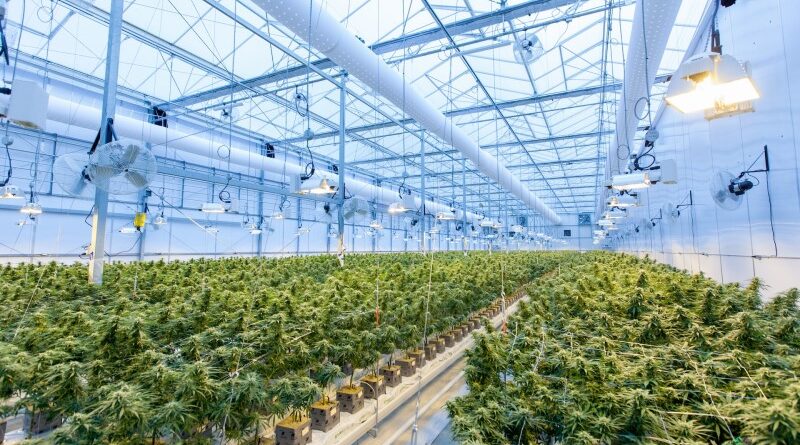The Advantages of Smart Indoor Gardening Systems
In recent years, the popularity of indoor gardening has soared, driven by a growing desire for fresh, organic produce. While traditional gardening methods require significant time and expertise, smart indoor gardening systems are a lot simpler to manage. Let’s explore the many benefits of these systems and how they are changing the landscape of home gardening.
Year-round harvesting
One of the most significant advantages of smart indoor gardening systems is their ability to enable year-round harvests. Traditional gardening is often constrained by the seasons, limiting the availability of fresh produce to specific times of the year. However, with smart systems, you can create a controlled environment where plants can thrive regardless of the weather outside.
By regulating factors such as temperature, humidity, and lighting, these systems provide the optimal conditions needed for plants to grow and produce fruits and vegetables throughout the year. This not only ensures a steady supply of fresh, homegrown produce but also reduces reliance on expensive and often chemically treated store-bought alternatives.
Optimizing space
Another key advantage of smart indoor gardening systems is their ability to optimize space utilization. For many urban dwellers or those with limited outdoor areas, traditional gardening may seem impractical or unattainable. However, smart systems are designed to maximize space efficiency, making it possible to cultivate a thriving garden even in the smallest of spaces.
Vertical gardening solutions, hydroponic setups, and modular designs allow plants to be arranged in compact configurations, utilizing walls, shelves, or even suspended structures. With these innovative systems, you can transform any corner of your home into a lush and productive garden, bringing nature indoors and making the most of available space.
Water conservation

Smart indoor gardening systems also offer significant advantages in terms of water conservation. Traditional gardening methods and backyard gadgets often rely on large amounts of water, leading to wastage and environmental strain. In contrast, smart systems employ precise sensors and automated watering mechanisms to deliver water directly to the plant’s roots, minimizing water loss through evaporation or runoff.
Many systems recycle and filter water, ensuring that it is used efficiently and reducing overall water consumption. These systems contribute to sustainable gardening practices by optimizing water usage, making them an eco-friendly choice for plant enthusiasts.
Disease and pest reduction
Gardening enthusiasts are well aware of the challenges posed by pests and diseases that can wreak havoc on plants. Smart indoor gardening systems offer a distinct advantage in this regard by providing effective pest and disease control mechanisms. Integrated pest management systems, automated sensors, and artificial intelligence algorithms help detect early signs of infestation or disease and take proactive measures to address them.
These innovative tech solutions can regulate environmental conditions, such as airflow and humidity, to discourage the proliferation of pests and pathogens. By minimizing the risk of plant damage and the need for harmful pesticides, smart indoor gardening systems promote healthier plants and safer, chemical-free produce.
Less time investment needed
With our increasingly busy lifestyles, finding time for gardening can be a challenge. However, smart indoor gardening systems alleviate this constraint by streamlining and automating various tasks. These systems can be programmed to adjust lighting schedules, nutrient delivery, and watering frequency based on the specific needs of different plants.
By reducing the manual effort required, smart gardening systems free up valuable time for other activities, making gardening more convenient and accessible for individuals with busy schedules. Remote monitoring and control features enable gardeners to keep an eye on their plants and make adjustments even when they are away, ensuring their plants’ well-being and minimizing the risk of neglect.
Plant diversity
Plant diversity is a fascinating aspect of indoor gardening, and it encompasses a wide range of species that can be cultivated with smart indoor gardening systems. From culinary herbs and leafy greens to flowering plants and ornamentals, the possibilities are virtually endless. Even unique and specialized plants, such as cannabis, can be successfully grown indoors with the right knowledge and tools. Cannabis, in particular, has gained significant attention in recent years due to its medicinal and recreational properties.
With the increasing legalization and acceptance of cannabis in many regions, enthusiasts can explore the cultivation of different cannabis strains within the confines of their homes. While it is essential to adhere to local laws and regulations, the abundance of important cannabis growing info available online makes it relatively easy for individuals to find the necessary guidance and tips for growing this plant.
Healthier plants

Smart indoor gardening systems contribute to the cultivation of healthier plants by providing optimal growing conditions and precise monitoring of plant health. These systems offer advanced features such as automated nutrient delivery, regulated lighting schedules, and environmental sensors that ensure plants receive the necessary resources and care.
They maintain balanced conditions and promote robust growth, increased resistance to pests and diseases, and enhanced nutrient absorption. The controlled environment created by these systems minimizes exposure to external pollutants and contaminants, resulting in cleaner and healthier plants.
Read also: How to Create and Maintain a Family-Friendly Backyard?
Conclusion
Smart indoor gardening systems have opened up a world of possibilities for both seasoned gardeners and newcomers to the hobby. From providing year-round harvests to conserving water, these systems offer numerous advantages that make indoor gardening accessible, efficient, and rewarding. As technology continues to evolve, we can expect even more innovations that will further revolutionize the way we cultivate our indoor gardens. Embracing smart indoor gardening systems not only allows us to take control of our food production, nurture sustainable habits, and create a greener future for all.



